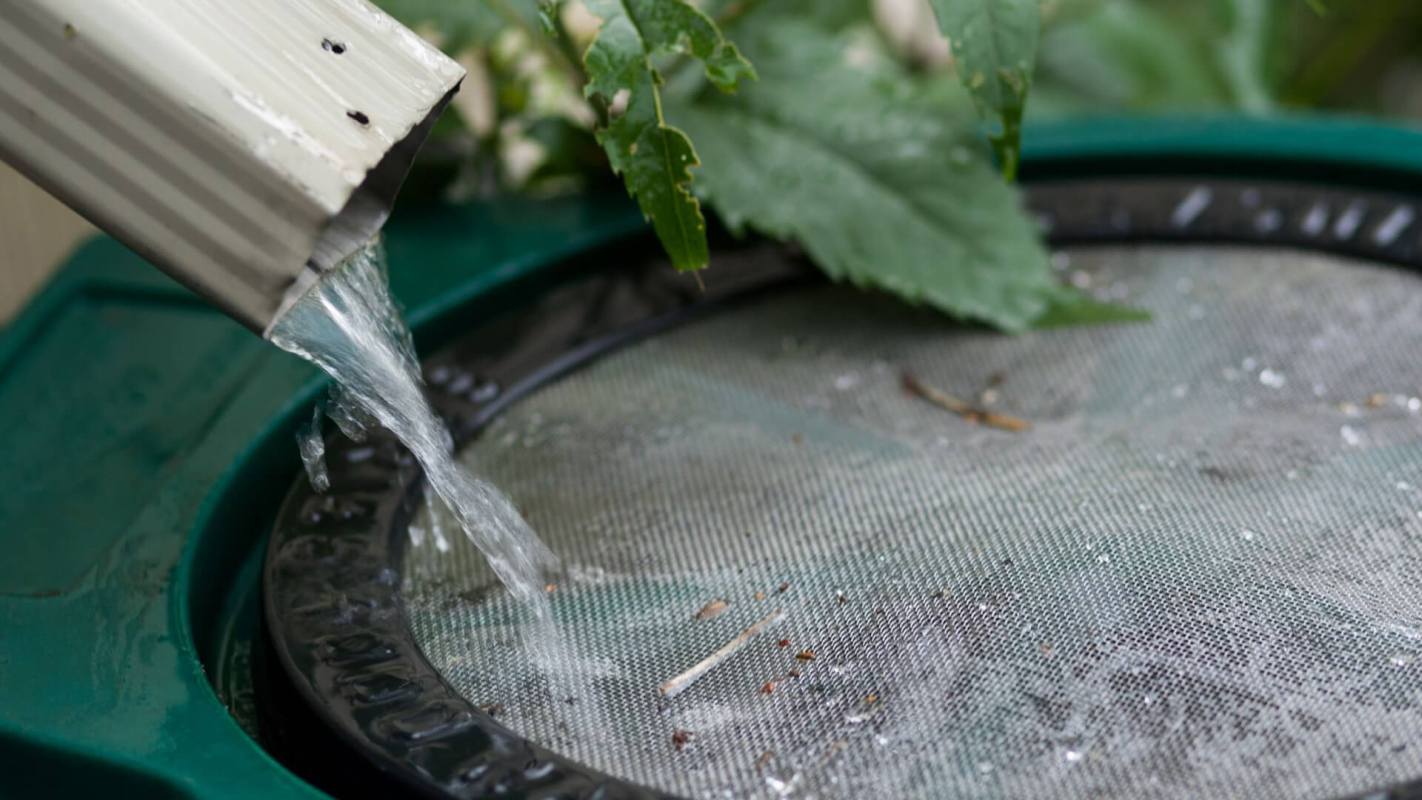Today, people collect rainwater for various reasons, including cleaning, cooking, indoor plumbing, and gardening. It's a sensible way for homeowners to conserve water — and save lots of money in the process.
What is rainwater collection?
Rainwater collection is an alternative water supply approach that captures, diverts, and stores rainwater for later use. It can alleviate the demands of existing water supplies and even reduce the adverse effects of flooding and runoff.
Today, there are plenty of different rainwater harvesting systems, but they all have the same basic components — a catchment surface, a conveyance system, storage, and distribution.
Your system can be as basic as a collection barrel or as complex as an underground storage and water treatment system.
If you're looking to add rain harvesting to your home, a storage barrel is a cheap, easy place to start. You need rain gutters and a downspout, but otherwise, there isn't much setup involved.
Most garden supply centers have ready-made rainwater collection barrels with a screened lid to keep debris out of the harvested rainwater. These barrels will often have spigots that allow you to attach a hose, but if not, you can raise your barrel and use its drainage hole to empty the water.
Is collecting rainwater a good idea?
Collecting rainwater is beneficial for two main reasons: it saves money, and it conserves precious water resources.
Even by installing a small rainwater collection system, you cut major costs from your water bill. According to the Penny Hoarder, one woman reportedly saved $2,000 in five years using a rainwater barrel.
Beyond your water bill savings, some states even have incentive programs that will literally pay you to save rainwater.
And for those with green thumbs, collecting rainwater is great for your plants. Though the salts, minerals, and chlorine used to treat tap water are safe for us, they don't always benefit our plants. Using rainwater for gardening can help avoid disrupting the delicate balance of minerals and nutrients of your plants.
On a larger scale, harvesting rainwater can help reduce the demand for groundwater and the negative environmental impacts that come with drilling for it.
Rainwater harvesting can also be a valuable tool to adjust to more frequent and extreme weather events, like excessive downpours.
Tips for collecting rainwater
The most important thing to remember about rainwater harvesting is that this water isn't pure. Rain can wash contaminants into your catchment, such as bird poop and other debris from your roof.
The CDC also notes that rainwater can carry bacteria, chemicals, parasites, and viruses that can cause illness if consumed before being treated. And though no federal or state laws prohibit rainwater collection, some states have certain restrictions.
Follow The Cool Down on Instagram and subscribe to our newsletter.








